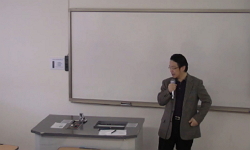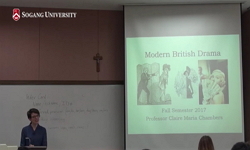Is the anthropological approach meaningful to international law? Contrary to existing common sense, there is a case in which legal scholars studied international law academically by discussing primitive society, which was mainly discussed in anthropol...
http://chineseinput.net/에서 pinyin(병음)방식으로 중국어를 변환할 수 있습니다.
변환된 중국어를 복사하여 사용하시면 됩니다.
- 中文 을 입력하시려면 zhongwen을 입력하시고 space를누르시면됩니다.
- 北京 을 입력하시려면 beijing을 입력하시고 space를 누르시면 됩니다.

국제법과 인류학 : 국제사회의 원시성에 대한 비판적 고찰 = International Law and Anthropology: A Critical Study on the Primitiveness of the International Community
한글로보기부가정보
다국어 초록 (Multilingual Abstract)
Is the anthropological approach meaningful to international law? Contrary to existing common sense, there is a case in which legal scholars studied international law academically by discussing primitive society, which was mainly discussed in anthropology. H.L.A. Hart, in particular, argued that international law was analogous to primitive law as a primary rule. Hart quoted anthropologists when discussing primitive law. This study aims to examine the characteristics of the international society by critically approaching Hart's theory of primitive society and examining primitive society from an anthropological perspective. The premise of Hart's modernist view is the inability to separate the governing state from the law. This study criticizes this from the point of view of legal pluralism in anthropology, and attempts to examine the unique characteristics of the international community. By empirically examining the social structure and legal system of the so-called primitive society and considering the thick description thereof, different types of laws and semantic systems may exist. Although Hart points out three limitations of primitive society, it is difficult to accept Hart's argument when considering the context of that society from a different perspective. In such a society, the uncertainty of the law may be perceived differently. Also the legislative process may not necessarily be static. Furthermore, it cannot be concluded that there is no judiciary at all, and it is difficult to conclude that self-help is necessarily ineffective. When viewed outside of the the modernist perspective, the issue of incomplete international law in the international community can be partially resolved, and there is a possibility that the unique legal character of international law can be accepted as it is according to its context. This study points out that the social structure of the international community is different from that of the municipal law based on the nation-state, and accordingly, the meaning system, the imagined reality in the international community, may be different. Borrowing Geertz’s perspective, the international community can be seen to be composed of different forms of distinction between law and fact. International law can be viewed as its own system of meaning that must be interpreted differently from the point of view of members of the international community.
국문 초록 (Abstract)
인류학적 접근이 국제법에 유의미한 부분이 있을까? 기존 상식과 달리 법학자들이 원시사회 개념을 통하여 국제사회의 구조를 고찰한 사례가 있다. 특히, H.L.A. Hart는 인류학자들의 글을 인...
인류학적 접근이 국제법에 유의미한 부분이 있을까? 기존 상식과 달리 법학자들이 원시사회 개념을 통하여 국제사회의 구조를 고찰한 사례가 있다. 특히, H.L.A. Hart는 인류학자들의 글을 인용하며 국제법이 1차규칙으로 원시법과 유사하다고 주장하였다. Hart의 이러한 시각은 국제법학계에도 지대한 영향을 주어왔다. 이에 본 연구는 Hart의 원시사회에 대한 시각이 근대주의적 시각이라 비판하며, 인류학적인 시각에서 국제사회의 구조와 성격을 재고찰하는 것을 목적으로 한다. Hart의 시각은 근대주의적인 것으로 그 전제에는 통치국가와 법을 분리하지 못하는 사고가 있다. 본 연구는 이를 인류학의 법다원주의적 시각에서 비판하며, 국제사회의 독특한 특성을 고찰하고자 한다. 현실의 원시사회 사회구조와 법체계를 그들의 시각에서 중층기술하여 실증적으로 고찰하여 보았을 때, 다른 형태의 법과 의미체계가 존재할 수 있다. Hart는 원시사회의 문제점 3가지를 지적하지만, 이와 같은 시각에서는 Hart의 주장을 받아들이기 어렵다. 비근대주의적 시각에서는 법의 불확정성이 달리 받아들여질 수 있다. 또한, 원시사회의 입법과정이 정적이라는 것이 당위적으로 받아들여져야 할 필요가 없다. 나아가 원시사회에서 사법부가 아예 없다고 단정할 수도 없고, 자력구제가 반드시 비효율적이라고 단정하기도 어렵다. 근대주의적 시각을 탈피했을 때, 국제법의 구조는 그만의 독특한 법적성격과 그 맥락에 따라 재해석하여 이해될 수 있을 것이다. 필자는 국제사회의 사회구조가 국민국가를 기본으로 하는 국내법의 그것과 차이가 있기에, 다르게 상상된 현실인 그 의미체계의 구성이 국내법과는 다를 수밖에 없다는 점을 지적한다.
참고문헌 (Reference)
1 Masters, Roger D., "World Politics as a Primitive Political System" 16 (16): 595-619, 1964
2 Griffiths, John, "What is Legal Pluralism?" 18 : 1-55, 1986
3 Kammerhofer, Jörg, "Uncertainty in International Law: A Kelsenian Perspective" Routledge 2011
4 Merry, Sally Engle, "Transnational Human Rights and Local Activism: Mapping the Middle" 108 (108): 38-51, 2006
5 Weil, Prosper, "Towards Relative Normativity in International Law?" 77 : 413-442, 1983
6 Halme-Tuomisaari, Miia, "Toward Rejuvenated Inspiration with the Unbearable Lightness of Anthropology" 115 : 283-288, 2021
7 Bianchi, Andrea, "The Unbearable Lightness of International Law" 6 (6): 335-359, 2018
8 Kelly, Tobias, "The UN Committee against Torture: Human Rights Monitoring and the Legal Recognition of Cruelty" 31 (31): 777-800, 2009
9 Teubner, Gunther, "The Two Faces of Janus: Rethinking Legal Pluralism" 13 : 119-140, 1992
10 Shankman, Paul, "The Thick and the Thin: On the Interpretive Program of Clifford Geertz" 25 : 261-280, 1984
1 Masters, Roger D., "World Politics as a Primitive Political System" 16 (16): 595-619, 1964
2 Griffiths, John, "What is Legal Pluralism?" 18 : 1-55, 1986
3 Kammerhofer, Jörg, "Uncertainty in International Law: A Kelsenian Perspective" Routledge 2011
4 Merry, Sally Engle, "Transnational Human Rights and Local Activism: Mapping the Middle" 108 (108): 38-51, 2006
5 Weil, Prosper, "Towards Relative Normativity in International Law?" 77 : 413-442, 1983
6 Halme-Tuomisaari, Miia, "Toward Rejuvenated Inspiration with the Unbearable Lightness of Anthropology" 115 : 283-288, 2021
7 Bianchi, Andrea, "The Unbearable Lightness of International Law" 6 (6): 335-359, 2018
8 Kelly, Tobias, "The UN Committee against Torture: Human Rights Monitoring and the Legal Recognition of Cruelty" 31 (31): 777-800, 2009
9 Teubner, Gunther, "The Two Faces of Janus: Rethinking Legal Pluralism" 13 : 119-140, 1992
10 Shankman, Paul, "The Thick and the Thin: On the Interpretive Program of Clifford Geertz" 25 : 261-280, 1984
11 MacDonald, Ronald St. J., "The Structure and Process of International Law: Essays in Legal Philosophy, Doctrine and Theory" Brill 1983
12 Clifford, James, "The Predicament of Culture:Twentieth Century Ethnography, Literature, and Art" Harvard University Press 277-346, 1988
13 Benda-Beckmann, "The Power of Law in a Transnational World : Anthropological Enquiries" Berghahn 2009
14 Riles, Annelise, "The Network Inside Out" The University of Michigan 2001
15 Allott, Anthony N., "The Limits of Law" Butterworth 1980
16 Nader, Laura, "The Life of the Law: Anthropological Projects" University of California Press 2002
17 Clifford Geertz, "The Interpretation of Cultures" Basic Books 1973
18 Ramsey, Michael D., "The Empirical Dilemma of International Law" 41 : 1243-1261, 2004
19 Hart, H. L. A., "The Concept of Law" Clarendon Press 1994
20 Llewellyn, Karl N., "The Cheyenne Way" the University of Oklahoma Press 1941
21 Pirie, Fernanda, "The Anthropology of Law" Oxford University Press 2013
22 Stauder, Jack., "The 'Relevance' of Anthropology to Colonialism and Imperialism" 16 : 29-51, 1974
23 Ross, Edward A., "Social Control" 1 : 513-535, 1896
24 Camaroff, John L., "Rules and Process" University of Chicago Press 1981
25 Hoof, G. J. H . van, "Rethinking the Sources of International Law" Kluwer Law and Taxation Publishers 1983
26 "Responsibility of States for Internationally Wrongful Acts"
27 "Report of the International Law Commission on the work of its forty-fourth session, 4 May - 24 July 1992, Official Records of the General Assembly, Forty-seventh session, Supplement No. 10" 1992
28 "Report of the International Law Commission on the work of its forty-eighth session, 6 May - 26 July 1996, Official Records of the General Assembly, Fifty-first session, Supplement No. 10" 1996
29 Waldron, Jeremy, "Reading HLA Hart's The Concept of Law" Hart Publishing 378-404, 2013
30 Stocking, Jr. George W., "Race, culture, and evolution: Essays in the history of anthropology" Free Press 1968
31 Kelsen, Hans, "Pure Theory of Law" The Lawbook Exchange, Ltd 2005
32 Lauterpacht, Hersch, "Private law analogies in international law" London School of Economics and Political Science 1926
33 Bossert, Philip J., "Philosophy of Man as a Rigorous Science: A View of Claude Levi-Strauss' Structural Anthropology" 5 (5): 97-107, 1982
34 Cournot, M., "On the Ideas of Species and Race Applied to Man and Human Society: On Anthropology and Ethnology" 2 (2): 267-280, 1864
35 Black, Donald, "On Self-help in Modern Society" 12 : 33-44, 1987
36 Sacco, Rodolfo, "Mute Law" 43 : 455-467, 1995
37 Gluckman, Max, "Malinowski’s contribution to social anthropology" 6 (6): 41-46, 1947
38 Geertz, Clifford, "Local Knowledge" Basic Books 1983
39 Merry, Sally Engle, "Legal Pluralism" 22 : 869-896, 1988
40 Hernández, Gleider, "Law’s Determinability: Indeterminacy, Interpretative Authority, and the International Legal System" 69 : 191-219, 2022
41 Pound, Roscoe, "Law and Social Change" 3 : 183-195, 1927
42 Malinowski, Bronislaw, "Law and Order in Polynesia: A Study of Primitive Legal Institution" String Press 1934
43 Riles, Annelise, "Introduction to the Symposium on the Anthropology of International Law" 115 : 268-271, 2021
44 Rabinow, Paul, "Interpretative Social Science: A Second Look" University of California Press 1987
45 Oppenheim, Lassa, "International Law: A Treatise, Vol. I: Peace" Longmans, Green and Co. 1912
46 Koskenniemi, Martti, "International Law in a Post-Realist Era" 16 : 1-19, 1995
47 Dinstein, Yoram, "International Law as a Primitive Legal System" 19 : 1-32, 1986
48 Campbell, A., "International Law and Primitive Law" 8 (8): 169-196, 1988
49 Bianchi, Andrea, "International Law Theories: An Inquiry into Different Ways of Thinking" Oxford University Press 2016
50 Barton, Roy Franklin, "Ifugao Law" 15 (15): 1-330, 1919
51 Scheff, Thomas J., "Goffman Unbound!: A New Paradigm for Social Science" Routledge 2006
52 Ehrlich, Eugene, "Fundamental Principles of the Sociology of Law" Harvard University Press 1936
53 Kandel, Randy Frances, "Double Vision: Anthropologists at Law" Blackwell 1-4, 1992
54 Cowan, Jane, "Culture and Rights: Anthropological Perspectives" Cambridge University Press 2001
55 Sarfaty, Galit A., "Corporate Actors as Translators in Transnational Lawmaking" 115 : 278-282, 2021
56 Anders, Gerhard, "Contesting Expertise: Anthropologists at the Special Court for Sierra Leone" 20 (20): 426-444, 2014
57 Arajarvi, Noora, "Between Lex Lata and Lex Ferenda - Customary International (Criminal) law and the Principle of Legality" 15 : 163-183, 2010
58 Raz, Joseph, "Authority and Interpretation: On the Theory of Law and Practical Reason" Oxford University Press 2009
59 Koskenniemi, Martti., "Apology and Utopia: The Structure of International Legal Argument" Cambridge University Press 2005
60 Pospisil, Leopold J., "Anthropology of Law: A Comparative Theory" Harper & Row 1971
61 Sapignoli, Maria, "Anthropology and the AI-Turn in Global Governance" 115 : 294-298, 2021
62 Goodale, Mark, "Anthropology and Law: A Critical Introduction" New York University Press 2017
63 Merry, Sally Engle, "Anthropology and International Law" 35 : 99-116, 2006
64 Sieder, Rachel, "Anthropological Contributions to International Legal Approaches to Violence Against Indigenous Women" 115 : 273-277, 2021
65 Bellier, Irène, "An Anthropology of the European Union: Building, Imagining and Experiencing the New Europe" Berg 2000
66 Goodale, Mark, "After International Law: Anthropology Beyond the ‘Age of Human Rights’" 115 : 289-293, 2021
67 Howell, P. P., "A Manual of Nuer Law: Being an Account of Customary Law, its Evolution and Development in the Courts Established by the Sudan Government" Oxford University Press 1954
68 Tamanaha, Brian Z., "A General Jurisprudence of Law and Society" Oxford University Press 2001
69 Abel, Richard L., "A Comparative Theory of Dispute Institutions in Society" 8 : 217-347, 1974
동일학술지(권/호) 다른 논문
-
한-미 디지털무역협정에 포함될 주요 요소에 대한 통상법적 분석
- 대한국제법학회
- 손기윤
- 2022
- KCI등재
-
- 대한국제법학회
- 최성규
- 2022
- KCI등재
-
해수면 상승과 국가성 : ILC 논의의 의의 및 한계를 중심으로
- 대한국제법학회
- 임예준
- 2022
- KCI등재
-
- 대한국제법학회
- 이주영
- 2022
- KCI등재




 DBpia
DBpia






